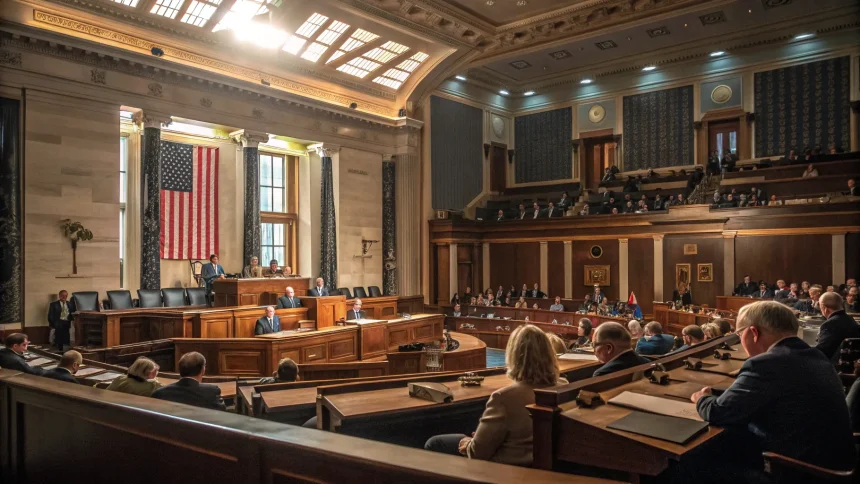Members of Congress from both parties are advancing a proposal to limit unauthorized military actions after reports that the Trump administration is weighing land strikes inside a foreign country. The measure, introduced this week on Capitol Hill, would require the White House to seek clearer approval before ordering ground operations abroad. It reflects fresh concern over the scope of presidential war powers and the risk of rapid escalation.
Lawmakers said swift action is needed to prevent a surprise operation that could strain alliances and trigger retaliation. The effort comes as congressional leaders seek more transparency on any plans under consideration and the legal basis for them.
What the Proposal Would Do
The draft legislation would mandate briefings to key committees before any cross-border ground action, with limited exceptions for emergencies. It would also set a short timeline for Congress to vote on continued operations if initial action proceeds under existing authorities. Sponsors say the goal is to clarify guardrails without tying the hands of commanders in a crisis.
- Advance notification to Congress for planned land strikes.
- Public reporting on legal authority and objectives.
- Time-limited authorization for ongoing operations.
- Independent review of civilian harm assessments.
Supporters argue that these steps reduce the chance of mission creep and keep the public informed about costs and risks.
Concerns Driving the Push
At the heart of the debate is whether existing laws give the executive branch too much latitude to launch new operations. A 2001 authorization has been stretched across many theaters over two decades. Critics say that such broad use bypasses the constitutional role of Congress to declare war.
They also warn that ground operations on foreign soil carry higher risks than remote strikes. A miscalculation can place U.S. personnel in harm’s way, draw in regional powers, and create long-term commitments.
“Bipartisan proposal follows reports Trump administration is considering land strikes within the country,” one summary put it, capturing the urgency that spurred the bill.
Historical Context and Legal Backdrop
Since the War Powers Resolution of 1973, presidents have often notified lawmakers after action begins, not before. Congress has periodically sought to narrow this pattern, especially when operations expand without a fresh vote.
Past debates around Libya, Syria, and Yemen showed the friction between speed and oversight. Proponents of tighter rules say lessons from those conflicts point to the need for clearer limits and more open debate. Even when missions are short, they can have lasting regional effects and humanitarian costs.
Inside the Capitol Debate
Backers of the proposal say the measure is about accountability, not partisanship. They stress that any administration should operate under the same rules. Some Republicans and Democrats have drawn the same line on process even while disagreeing on policy goals.
Opponents worry that more steps could slow urgent decisions. They say the president must act fast to neutralize threats and protect U.S. forces. The sponsors counter that the bill carves out exceptions for true emergencies and focuses on transparency during the earliest stages.
Regional and Global Implications
Allies and partners watch U.S. internal debates closely. Unilateral ground operations can strain cooperation and complicate diplomatic efforts. They can also fuel anti-U.S. sentiment and be used by adversaries as propaganda.
Analysts caution that even limited operations can widen if local actors respond. Civilian harm, displacement, and damage to infrastructure can alter political dynamics for years. If talk of land strikes grows, markets and aid groups may prepare for instability, adjusting plans and raising costs.
What to Watch Next
Key committees are expected to mark up the bill in the coming days. Lawmakers will seek briefings from defense and intelligence officials on threat assessments, rules of engagement, and exit criteria. Votes could come quickly if reports of possible action intensify.
Advocates say the most important deliverable is a public accounting of goals and limits. They want a clear statement of mission, measurable outcomes, and a timeline for review.
The bipartisan push shows a rare point of agreement: ground operations carry high stakes and demand open debate. Whether the proposal passes or not, pressure is building for clearer rules, faster briefings, and tighter definitions of authority. The next few weeks will show if Congress reclaims more say over when and how the United States uses force—and whether the administration is willing to share more about its plans before boots step across a border.








